Organisations are increasingly faced with the challenge of delivering more value with fewer resources. The Lean philosophy, originally developed for manufacturing, has proven to be a powerful approach for IT departments aiming to enhance efficiency and drive business value. As budgets tighten and the demand for greater efficiency intensifies, adopting Lean IT practices can be the key to working smarter, not harder.
Understanding Lean Philosophy
At its core, Lean philosophy is about maximising value by eliminating waste. Waste, in Lean terms, is any activity or process that does not add value to the product or service from the customer’s perspective. Lean focuses on improving processes by identifying and removing these non-value-adding elements, thereby streamlining operations and enhancing overall performance.
Lean IT applies these principles to information technology, focusing on improving existing processes rather than reinventing the wheel. It emphasises the need for IT departments to become more business-value oriented, ensuring that every action and process contributes to the organisation’s strategic goals. This shift is especially crucial in today’s environment where organisations are under pressure to optimise resources and deliver results more efficiently.
The Benefits of Lean IT
Implementing Lean IT can bring about transformative changes within an organisation:
- Enhanced Customer Satisfaction: By focusing on value addition and reducing waste, organisations can deliver higher-quality services and products that better meet customer needs. This leads to improved customer satisfaction and increased loyalty.
- Increased Agility: Lean IT practices enable organisations to adapt quickly to changes and challenges. By streamlining processes and reducing variability, IT departments can respond more effectively to evolving business requirements and market conditions.
- Greater Strategic Value: Lean IT helps in achieving better quality services and increased productivity. It encourages efficient resource management, which in turn boosts employee motivation and engagement. When employees see their work processes improving, their job satisfaction and productivity often follow suit.
- Improved Financial Value: While Lean is not primarily a cost-reduction initiative, it can have a positive impact on an organisation’s financial performance. By reducing process waste and optimising value-adding activities, organisations can shorten the order-to-delivery cycle, enhance cash flow, and better manage operational costs.
Lean IT Essentials: The First Step
For those looking to embark on a Lean journey, our Lean IT Essentials certification course is a crucial starting point. Defined by Professional Designations Corp. (PDC), this entry-level course provides a foundational understanding of Lean principles tailored specifically for IT environments. Over two days, participants will learn how to assess and refine their processes to eliminate waste and improve business value. It prepares individuals for the Lean IT Essentials exam and sets the stage for more advanced certifications, such as Lean IT Kaisen and Lean IT Leadership.
Why Now?
The need for Lean IT is more pressing than ever. In a world where organisations are expected to do more with less, Lean IT offers a structured approach to working smarter. By embracing Lean principles, organisations can achieve operational excellence, enhance customer satisfaction, and drive significant business value.
As you consider the path to operational excellence, our Lean IT Essentials certification course provides the knowledge and tools to begin your journey. It’s not just about working harder but about working smarter—streamlining processes, reducing waste, and delivering greater value to your organisation.
Invest in Lean IT Essentials today and position your organisation for success for a long time to come.
The Value of Team-Wide Training
One of the key benefits of Lean IT is that it fosters a culture of continuous improvement across the organisation. Training your entire team in Lean IT principles amplifies these benefits. When everyone in the team understands and applies Lean practices collectively, the entire organisation can streamline workflows more effectively and eliminate inefficiencies.
A unified approach to Lean IT training ensures that all team members are aligned with the same goals and methodologies. This collective understanding enhances collaboration and communication, enabling teams to identify and address process inefficiencies more rapidly. By working together to apply Lean principles, teams can create a more cohesive and efficient working environment, leading to improved overall performance and value delivery.
Reach out to us to organise an in-house training session for your team.















